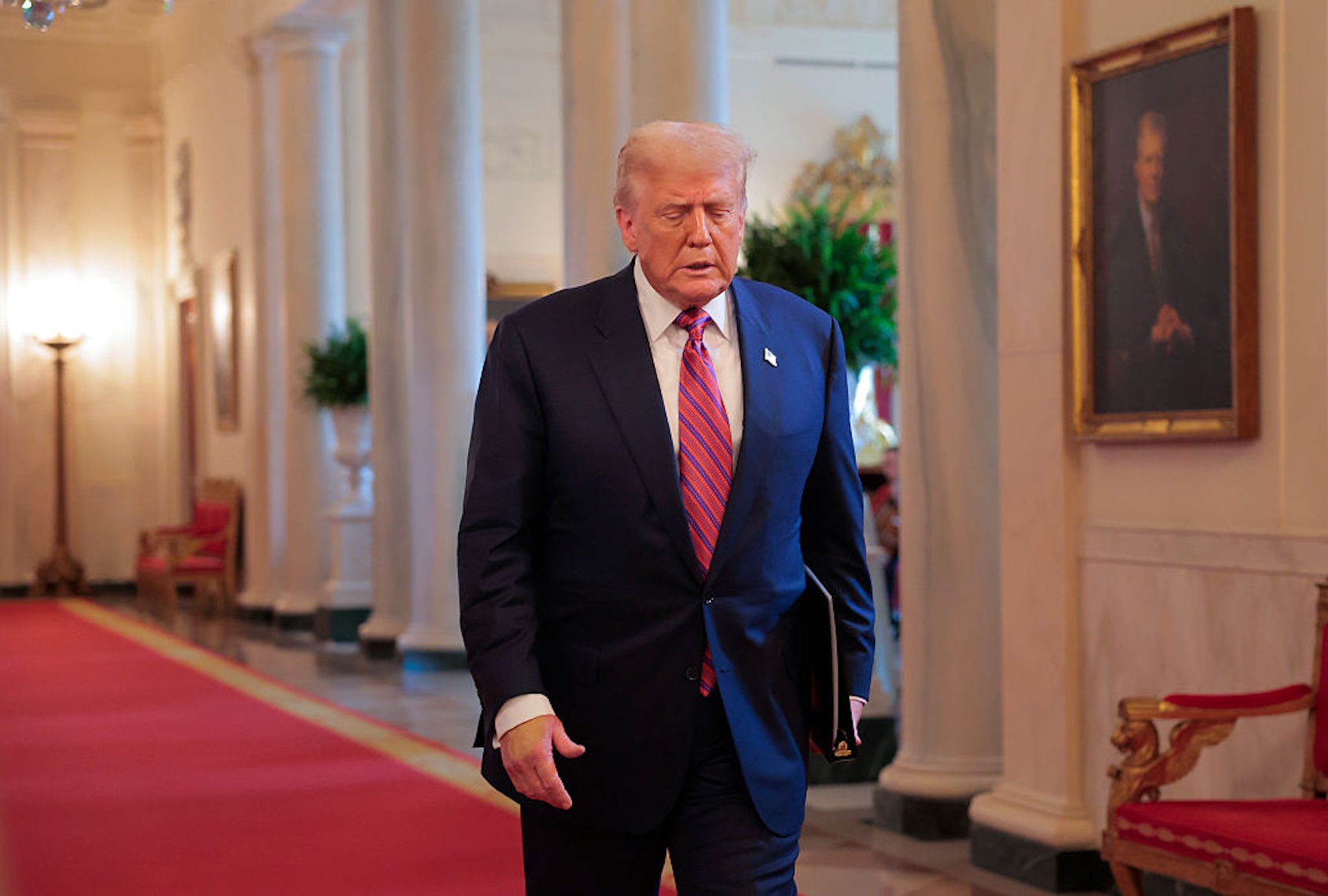World
Trump Shares False Claim About “Obamacare Royalties” Payment

President Donald Trump recently shared a claim on social media suggesting that former President Barack Obama has been receiving federal royalty payments for the use of the term “Obamacare.” This assertion, which lacks any factual basis, was posted on Trump’s Truth Social platform, where he has over 11 million followers. The claim described Obama as having collected a total of $40 million since 2010, implying that he received annual payments of $2.5 million linked to the Affordable Care Act.
The post stated, “DOGE halts yearly payments of $2.5 million to Barack Obama for ‘royalties linked to Obamacare.'” However, the name “Obamacare” has not been trademarked, meaning no royalties could be legally paid to Obama for its use.
Source of the Claim and Its Context
The origin of this claim can be traced back to the Dunning-Kruger Times, a satirical website known for publishing fictional content. The term “Dunning-Kruger effect” describes the phenomenon where individuals with limited knowledge overestimate their understanding of a subject. The website explicitly states on its About page that its articles are meant as satire, declaring, “Everything on this website is fiction.” They warn readers that any resemblance to real events or people is purely coincidental.
Despite the clear indication that the information is fictional, Trump chose to share the post, responding with a simple “Wow!” This reaction has amplified the reach of the unsubstantiated claim, raising concerns about the impact of misinformation on public discourse.
Implications of Misinformation
This incident highlights the broader issue of misinformation in political communication, particularly on social media platforms. As a prominent figure, Trump’s endorsement of dubious claims can lead to a significant spread of false information. The potential consequences of such actions can undermine public trust in legitimate news sources and create confusion regarding important topics like healthcare.
Political analysts have noted that the dissemination of unverified claims can significantly influence public opinion and voter behavior. In an age where information travels quickly and widely, the responsibility of public figures to verify the accuracy of shared content is paramount.
As discussions surrounding healthcare and the Affordable Care Act continue, it is crucial for both political leaders and the public to critically assess the sources of information. Distinguishing satire from fact is vital in ensuring informed decision-making and maintaining a healthy democratic discourse.
-

 Politics2 weeks ago
Politics2 weeks agoHamas Chief Stresses Disarmament Tied to Occupation’s End
-

 Science2 weeks ago
Science2 weeks agoOhio State Study Uncovers Brain Connectivity and Function Links
-

 Entertainment2 weeks ago
Entertainment2 weeks agoMegan Thee Stallion Exposes Alleged Online Attack by Bots
-

 Science3 weeks ago
Science3 weeks agoResearchers Challenge 200-Year-Old Physics Principle with Atomic Engines
-

 Entertainment2 weeks ago
Entertainment2 weeks agoPaloma Elsesser Shines at LA Event with Iconic Slicked-Back Bun
-

 Top Stories2 weeks ago
Top Stories2 weeks agoFederal Agents Detain Driver in Addison; Protests Erupt Immediately
-

 Business2 weeks ago
Business2 weeks agoHome Depot Slashes Prices on Halloween Favorites Up to 75%
-

 Top Stories2 weeks ago
Top Stories2 weeks agoOrioles Hire Craig Albernaz as New Manager Amid Rebuild
-

 Entertainment2 weeks ago
Entertainment2 weeks agoSyracuse Stage Delivers Lively Adaptation of ‘The 39 Steps’
-

 Top Stories2 weeks ago
Top Stories2 weeks agoWill Smith Powers Dodgers to World Series Tie with Key Homer
-

 World3 weeks ago
World3 weeks agoGlobal Military Spending: Air Forces Ranked by Budget and Capability
-

 Politics3 weeks ago
Politics3 weeks agoNHP Foundation Secures Land for 158 Affordable Apartments in Denver








